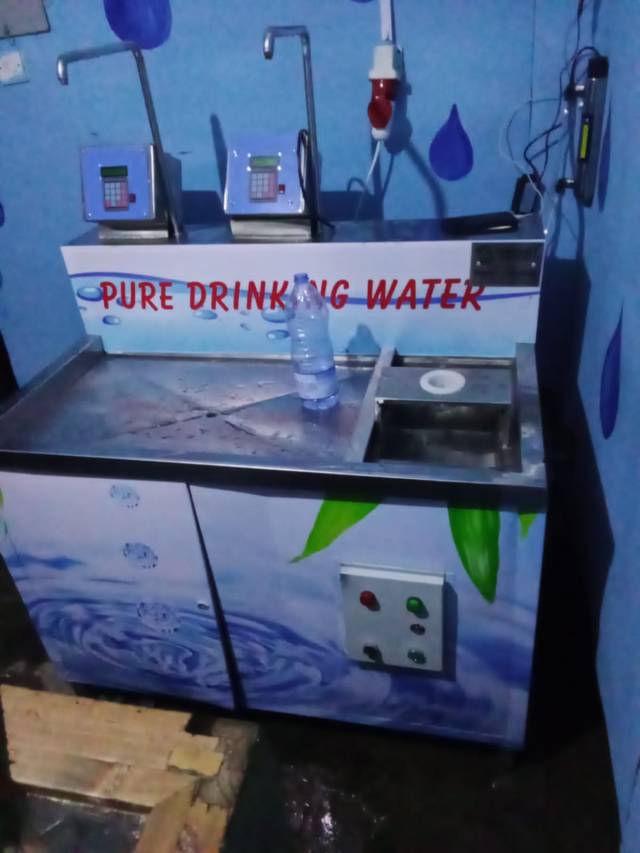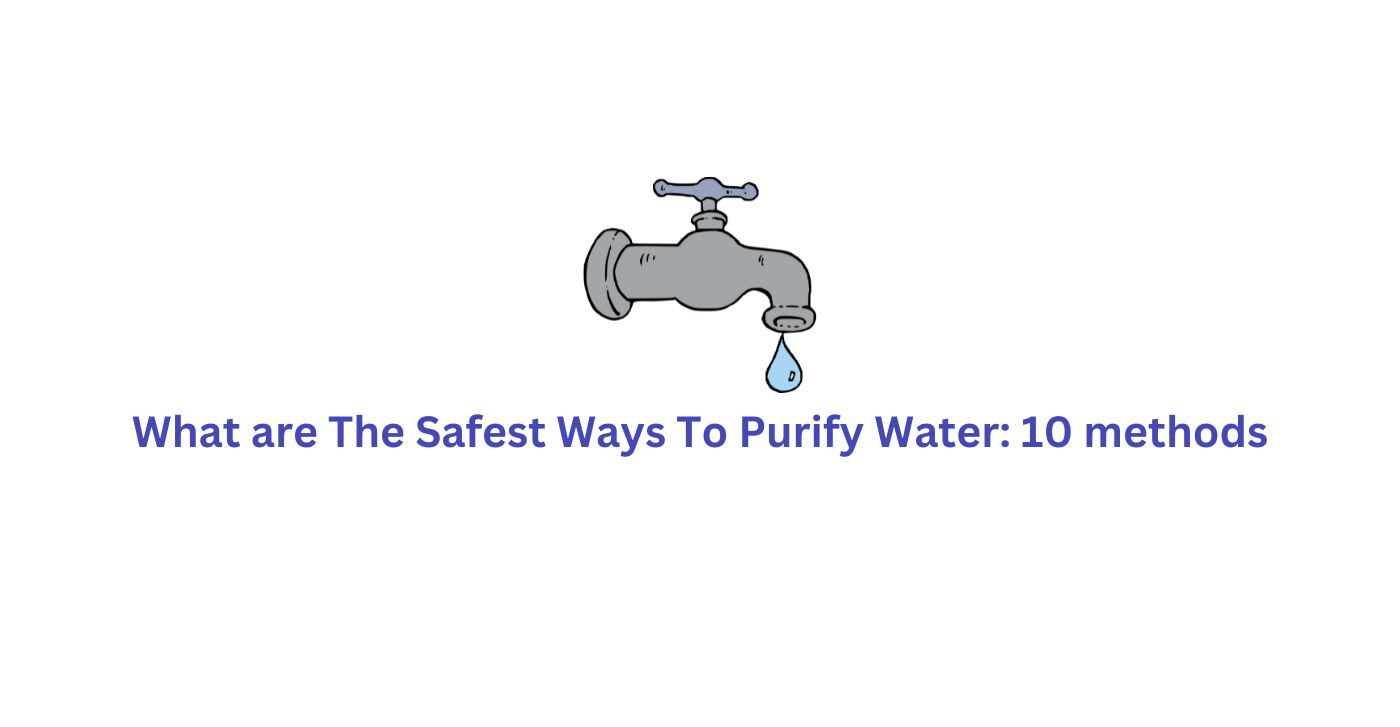Water Purification Business

Unlocking the Power of Pure: The Rise of Water Purification Businesses

In today’s world, where access to clean and safe drinking water is a fundamental necessity, the water purification industry has emerged as a crucial player, offering innovative solutions to ensure public health and environmental sustainability. This article delves into the dynamics of starting and growing a successful water purification business, highlighting key strategies, technologies, and market insights.
The Imperative for Water Purification

The importance of clean water cannot be overstated. With growing concerns about water scarcity, pollution, and the impact of climate change, the demand for reliable water purification solutions has skyrocketed. From residential needs to industrial applications, water purification businesses play a pivotal role in addressing these challenges.
According to a recent study by Market Research Future, the global water purification market is projected to reach a staggering $75 billion by 2027, reflecting a compound annual growth rate (CAGR) of 7.5%. This growth is driven by increasing awareness about water-borne diseases, stringent government regulations, and the rising demand for sustainable water management practices.
Navigating the Business Landscape
Starting a water purification business requires a comprehensive understanding of the market, regulations, and technological advancements. Here's a strategic roadmap to guide aspiring entrepreneurs:
Market Research and Targeting
Conduct in-depth market research to identify the specific needs and preferences of your target audience. This includes analyzing demographics, water quality concerns, and existing market gaps. For instance, in regions with high levels of water contamination, focusing on advanced filtration technologies could be a strategic move.
| Region | Primary Contaminants | Market Opportunity |
|---|---|---|
| Industrial Zones | Heavy Metals, Chemicals | Industrial Water Treatment |
| Rural Areas | Bacteria, Sediment | Affordable Home Solutions |
| Urban Areas | Microplastics, Disinfectants | Premium Filtration Systems |

Technological Expertise
Stay abreast of the latest advancements in water purification technologies. This includes reverse osmosis, ultraviolet disinfection, activated carbon filtration, and even emerging technologies like electrocoagulation. Choosing the right technology for your business model is crucial for cost-effectiveness and market competitiveness.
Consider partnering with research institutions or technology experts to stay updated on the latest innovations. For instance, collaborating with environmental engineering firms can provide access to cutting-edge solutions and enhance your market reputation.
Regulatory Compliance
Navigating the complex web of environmental and health regulations is essential. Ensure your business adheres to local, state, and federal standards for water quality and safety. This includes obtaining the necessary licenses and certifications, such as the NSF International certification for drinking water systems.
Stay informed about any upcoming changes in regulations, as this can impact your business strategies and product offerings. For example, new guidelines on microplastic removal may influence the demand for advanced filtration systems.
Building a Successful Water Purification Business
Once you've laid the foundation, it's time to focus on growth and sustainability. Here are key strategies to establish a thriving water purification business:
Product Differentiation
Offer unique and tailored solutions to stand out in the market. This could involve developing specialized filtration systems for specific water contaminants or creating innovative point-of-use water dispensers with added features like mineralization or taste enhancement.
For instance, PureWaterTech, a leading water purification company, offers a range of customizable filtration systems, allowing customers to choose the specific contaminants they want to target, thus catering to diverse needs.
Sustainable Practices
Embrace sustainability as a core value. Implement eco-friendly practices in your production processes, such as using renewable energy sources or adopting circular economy principles for waste management. This not only reduces your environmental footprint but also enhances your brand image and appeals to environmentally conscious consumers.
Consider partnering with local recycling initiatives to ensure proper disposal of used filters and equipment, further reinforcing your commitment to sustainability.
Marketing and Brand Awareness
Develop a comprehensive marketing strategy to reach your target audience. Utilize digital platforms, social media, and content marketing to educate consumers about the importance of water purification and the unique benefits of your products. Collaborate with influencers or industry experts to boost credibility and reach a wider audience.
Establish a strong online presence with a user-friendly website and active social media engagement. This allows customers to easily access product information, reviews, and testimonials, building trust and confidence in your brand.
Performance Analysis and Future Prospects

Regularly assess your business performance to identify areas of improvement and capitalize on emerging opportunities. Key performance indicators (KPIs) for water purification businesses include sales growth, customer retention rates, and market share.
To enhance performance, consider the following strategies:
- Expand your product portfolio to cater to diverse customer needs, including commercial and industrial applications.
- Invest in research and development to stay at the forefront of technological advancements and offer cutting-edge solutions.
- Build strategic partnerships with complementary businesses, such as water testing laboratories or plumbing services, to create a holistic water management ecosystem.
The future of water purification businesses looks promising, with growing global awareness about water sustainability and health. By staying agile, adapting to market trends, and continuously innovating, businesses in this sector can thrive and make a positive impact on public health and the environment.
FAQ
What are the key challenges faced by water purification businesses?
+Water purification businesses often face challenges related to initial capital investment, complex regulatory landscapes, and the need for continuous technological upgrades. Additionally, ensuring a consistent supply of high-quality raw materials for filtration media can be a logistical hurdle.
How can water purification businesses contribute to environmental sustainability?
+By implementing sustainable practices such as energy-efficient operations, responsible waste management, and the use of eco-friendly materials, water purification businesses can minimize their environmental footprint. Additionally, promoting water conservation through efficient filtration processes can contribute significantly to sustainability goals.
What are some emerging trends in the water purification industry?
+The industry is witnessing a rise in demand for point-of-use filtration systems, especially in urban areas. Additionally, the integration of smart technologies and IoT in water purification systems is gaining traction, offering real-time monitoring and optimization capabilities. Sustainable packaging and recyclable filter materials are also becoming key focus areas.



